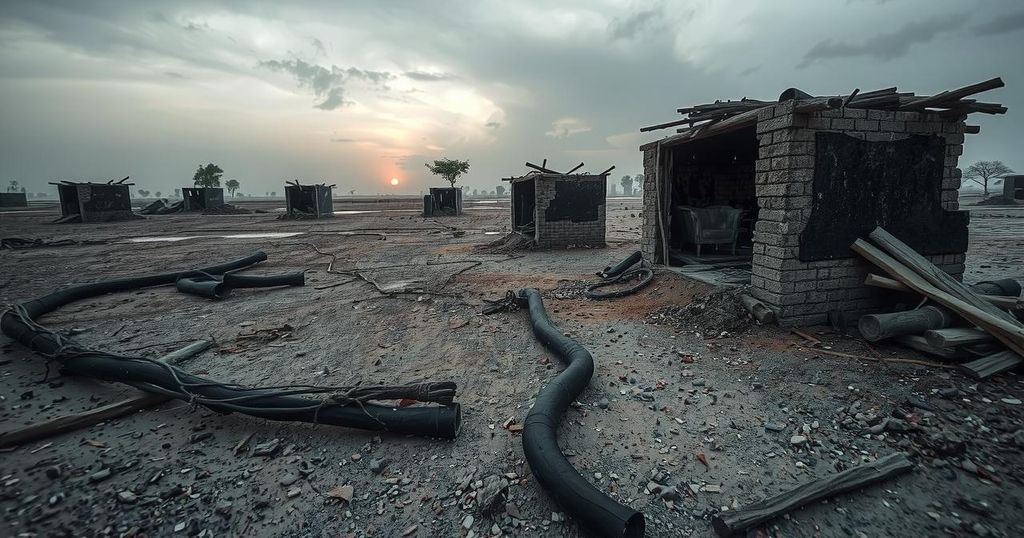Sudan has accused the UAE of complicity in genocide amid its civil war, asserting that the UAE supports the Rapid Support Forces. The conflict, rooted in a coup by military leaders, has involved external powers, with Sudan’s rich resources and critical geography playing significant roles.
Sudan has formally accused the United Arab Emirates (UAE) of complicity in genocide, submitting a claim to the International Court of Justice. This allegation highlights the UAE’s purported involvement in the ongoing civil conflict in Sudan, which has persisted for nearly two years. While Sudan and others have long claimed that the UAE supports the paramilitary group known as the Rapid Support Forces (RSF), the UAE has refuted these allegations.
Sudan is one of Africa’s largest nations, rich in natural resources including fertile agricultural land, natural gas, and gold. Notably, it stands as the third-largest gold producer on the continent. Geographically, Sudan borders Libya, where the UAE is said to support rebel factions, and also boasts a coastline along the Red Sea, an essential route for global oil shipping.
In 2021, Sudan’s military chief, Abdel Fattah al-Burhan, staged a coup with the assistance of his deputy, RSF commander Mohamed Hamdan Dagalo, commonly referred to as Hemedti. This alliance fractured two years later, leading to conflict between the two leaders, with multiple countries including the UAE, Egypt, Turkey, Iran, and Russia accused of backing opposing factions in the ongoing hostilities.
In summary, Sudan’s accusation against the UAE of genocide complicity underscores the geopolitical tensions accompanying the nation’s protracted civil war. The allegations implicate the UAE in supporting the RSF, amidst Sudan’s critical natural resource wealth and strategic location. The conflict’s escalation and foreign involvement have drawn international scrutiny, elevating the urgency for a resolution.
Original Source: www.scmp.com




